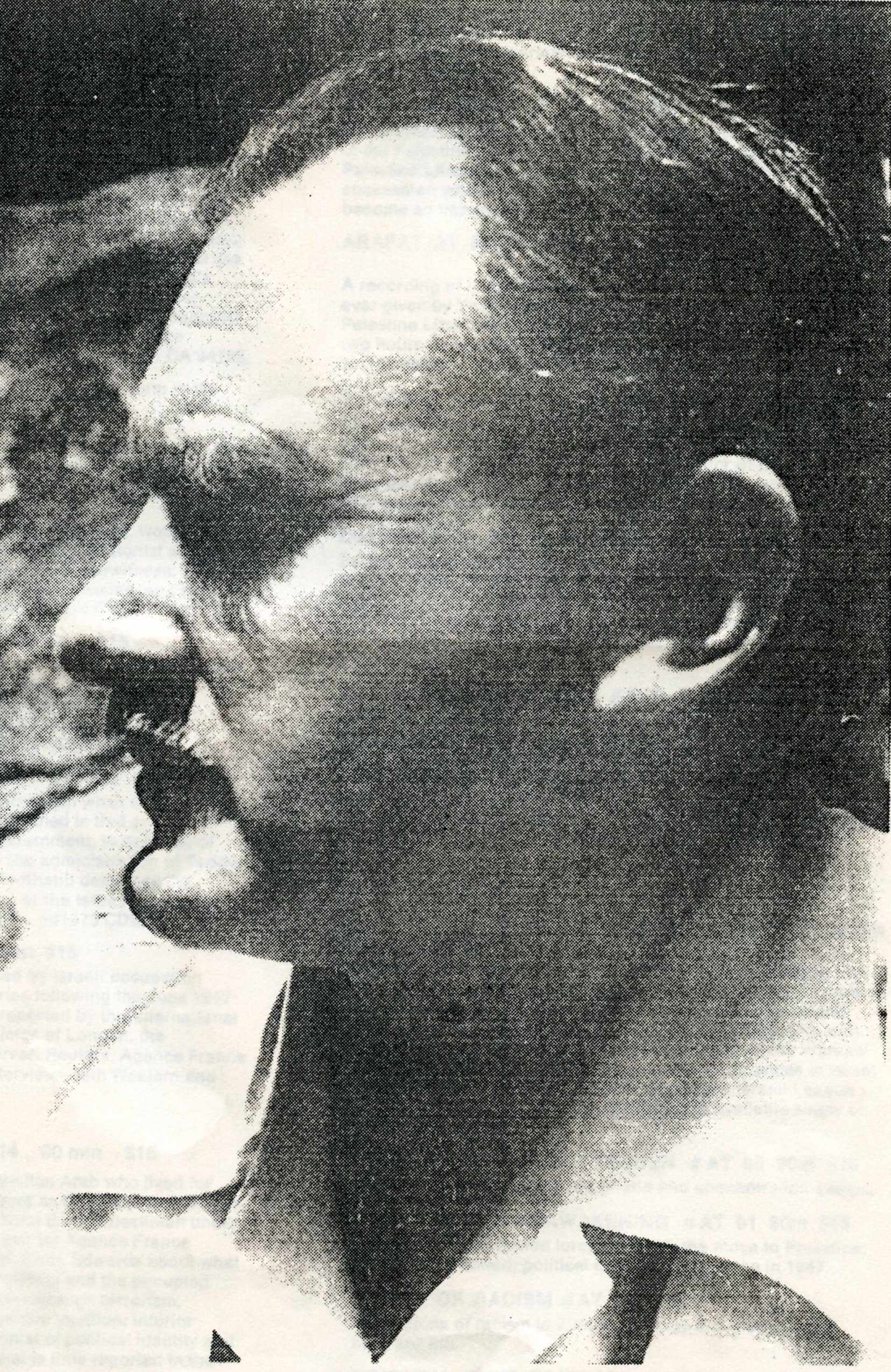Independent Collections
These collections were produced by independent journalists. Many of these recordings make up the bulk of the original collection of the Freedom Archives.
Subcollections
-
Colin Edwards Collection
Materials representing the life-work and journalism of a Welsh radio correspondent and journalist who worked for Pacifica stations, the BBC and many other broadcasters. -
Colin Edwards Free Speech Movement
This collection is produced by journalist Colin Edwards and represent a comprehensive account of the Free Speech Movement and its effect on the political climate of UC Berkeley. -
Programs produced by Kiilu Nyasha
Kiilu Nyasha is a revolutionary journalist and former member of the Black Panther Party. Kiilu still hosts Freedom Is A Constant Struggle, which now appears as a TV program. -
“Nothing is More Precious Than…” a news magazine including music and poetry
KPFA weekly news program running from 1973-1976 featuring in-depth coverage of liberation struggles around the world. -
“The Real Dragon” a news magazine including music and poetry
Real Dragon was a radio program broadcast on KPFA from 1971-1973. This news show focused on issues of national liberation, political prisoners, Vietnam and other major national and international topics.
Documents
Date: 9/28/1965Call Number: CE 042Format: 1/4 7 1/2 ipsProducers: Colin EdwardsCollection: Colin Edwards Collection
Discusses conditions in Mississippi, role of the police & how the federal government won't protect peoples' civil rights. Remembers Chaney, Goodman & Schwerner murders, admires the Deacons for Defense, Malcolm X (who was to have come to Mississippi the day after his assassination). Comments on the Muslim movement, how she doesn't agree with separation, suggests that Martin Luther King and the SCLC were too middle class, is hopeful about youth and the Mississippi Freedom Democratic Party.
Date: 9/28/1965Call Number: CE 043Format: 1/4 7 1/2 ipsProducers: Colin EdwardsCollection: Colin Edwards Collection
Discusses her life in Mississippi, trying to organize, voting rights. Also describes her attempt to register to vote, arrest & jail - particularly how cops forced other prisoners to beat her under threat of death (they were first made to drink corn whiskey) and despite federal hearings "those same men are still wearing their guns."
Date: 3/10/1965Call Number: CE 065Format: 1/4 7 1/2 ipsProducers: Colin EdwardsCollection: Colin Edwards Collection
St Patrick's Day rally at the Federal Building to "Stop the Bloodbath" in Selma. This period saw numerous rallies in solidarity with marches in Alabama as well as demonstrations sending people to participate.
Date: 1/1/1965Call Number: CE 119Format: 1/4 7 1/2 ipsProducers: Colin EdwardsCollection: Colin Edwards Collection
Discussion on the "Negro Identity" - writers discuss social divisions within the Black community and how these difference are being overcome in the wake of artistic rebellion. Includes separate interview with Bontemps on the emergence of Negroes in mainstream entertainment and communications media.
Date: 1/1/1965Call Number: CE 120Format: 1/4 7 1/2 ipsProducers: Colin EdwardsCollection: Colin Edwards Collection
Discussion on the "Negro Identity" - writers discuss social divisions within the Black community and how these difference are being overcome in the wake of artistic rebellion.
Date: 1/1/1965Call Number: CE 121Format: 1/4 7 1/2 ipsProducers: Colin EdwardsCollection: Colin Edwards Collection
Discussion on the "Negro Identity" - writers discuss social divisions within the Black community and how these difference are being overcome in the wake of artistic rebellion.
Date: 1/1/1965Call Number: CE 123Format: 1/4 7 1/2 ipsProducers: Colin EdwardsCollection: Colin Edwards Collection
Interviews with white Northern activists who participated in the Civil Rights movement in Mississippi during 1964, including the Freedom Summer.
Carl Oglesby, President of Students for a Democratic Society (SDS), delivers speech, after his return from Vietnam, at anti-war rally, considered to be "a landmark of American political rhetoric." He condemns the “corporate liberalism," American economic interests disguised as anti-Communist benevolence, that, he argued, underpins the Vietnam War. He says, "Don't blame me for sounding Anti-American. It's mowed my liberal values and broke my American heart."
7th Speed
Dr. Gerald Rosenfield, M.D. and Alan Perlman discusses their beginning involvement with SNCC through their respective universities, as well as the Civil Rights events in the Bay Area, and Mississippi.
Malcolm Zaretsky discusses is role as an ADHOC Committee member, his involvement with CORE at Ohio State and Berkeley and President Kennedy’s policies and their implications for the Civil Rights Movement.






